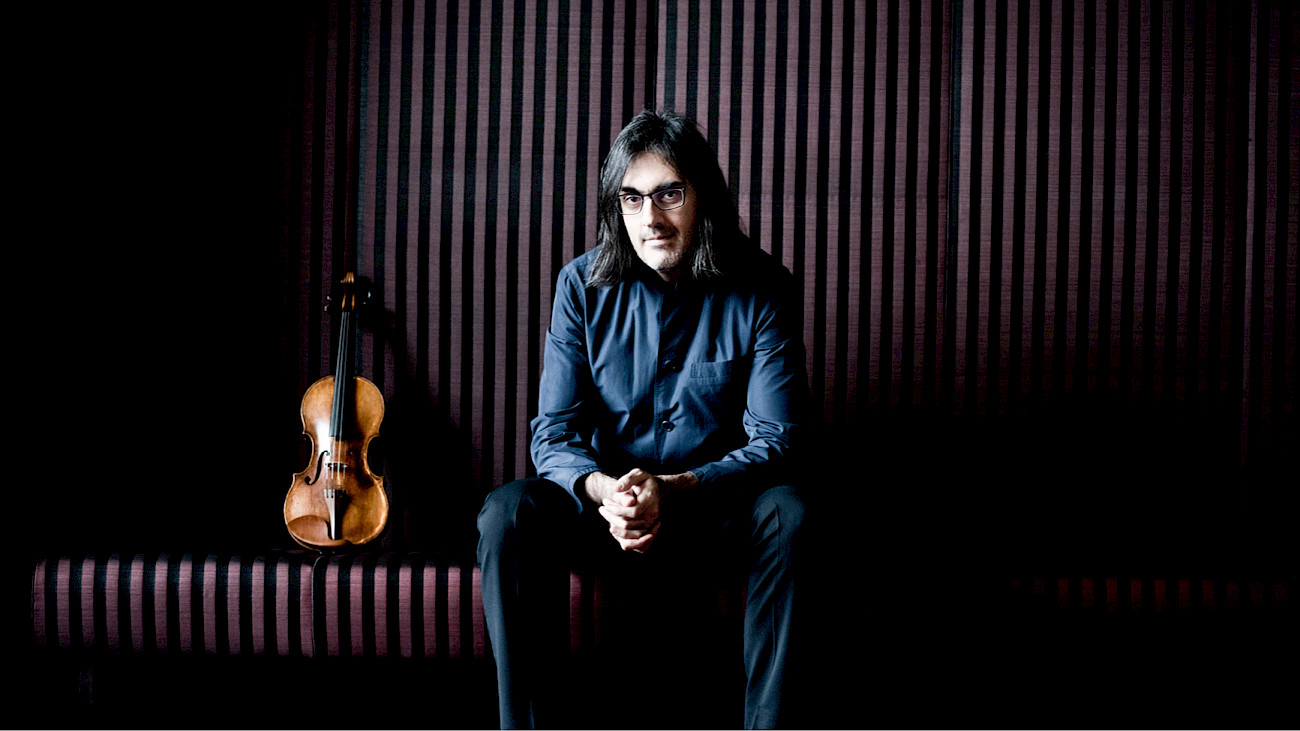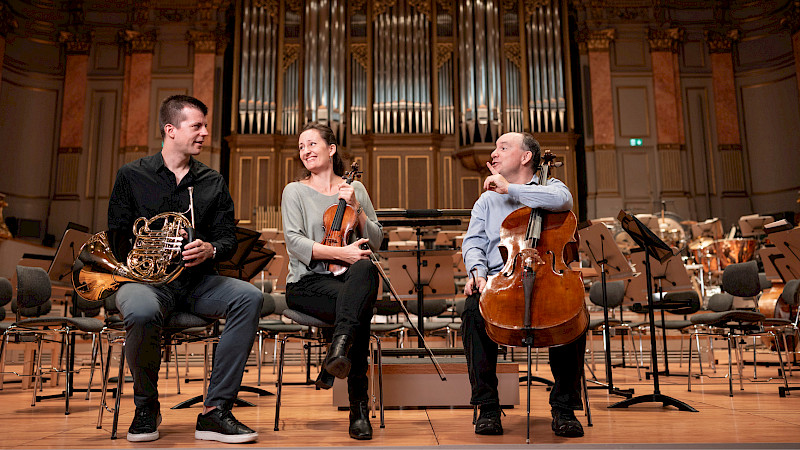
The ascent of Mount Olympus
For Leonidas Kavakos, a concerto is much more than the performance of a composition: the soloist, the audience, the instruments and the hall all become carriers of the music.
"A concert hall," says Leonidas Kavakos, "is in itself a musical instrument. " The Greek violinist is not referring exclusively to the acoustics, which he compares to the interior of a violin, where the sound is produced. The sound production and the attention paid to the music are just as important to him. This results in an "extremely positive tension, an intense atmosphere" for everyone involved.
"Unconditional communion"
This communal and profound experience across the boundaries of the stage is a central element of Kavakos' performances: "There is no requirement to enter a concert hall; this incredibly loud silence before a performance begins allows everyone to perceive what is happening on stage. It's an incredible process, multifaceted, but something that doesn't happen anywhere else in modern life. An unconditional communion in silence."
This probably also gives rise to the great respect that is recognisable when Leonidas Kavakos talks about his work as a solo violinist. He seems to feel an obligation when he encounters the audience or a work. For him, it is his task to interpret, to "find a way to express himself, but never to go beyond the composer's intention".
Symphonic soundscapes
Kavakos' thoughts on his profession, his duty as a soloist and his understanding of our musical world are correspondingly subtle. When he talks about the audience, the music or his violin, every expression gains weight. He weighs up the words carefully, pauses occasionally and corrects himself directly in the event of even slight nuances in meaning. His comments on Dmitri Shostakovich's first violin concerto, which he will play in Zurich, should therefore also be understood in a reflective manner: "Shostakovich's violin concerto is one of the greatest concertos ever written for an instrument. It is a concerto that leaves nothing to be desired. An enormously powerful, mighty symphonic work."
His description of the composition alone makes it almost audible how the solo violin moves through the most diverse worlds of sound in the four movements. The second movement, which follows a quiet nocturne, could best be characterised as an "inferno", the last movement as a triumph after the cadenza, which, according to Kavakos, is one of the most significant of all, and which follows the pulsating silence after the climax of the work. He is delighted every time he plays Shostakovich's first violin concerto, but also compares this feat of strength to climbing Mount Olympus.
Urge for music
Such peak performances require support. In addition to the concert hall and the people in it, Leonidas Kavakos believes that his instrument is an essential part of this, because "playing a great violin makes you a better musician". The fact that it is a Stradivarius is impressive for Kavakos simply because it is "an important piece of history". And the worlds of sound that open up with such an instrument "strengthen my urge to make more and more music".
We use deepL.com for our translations into English.





